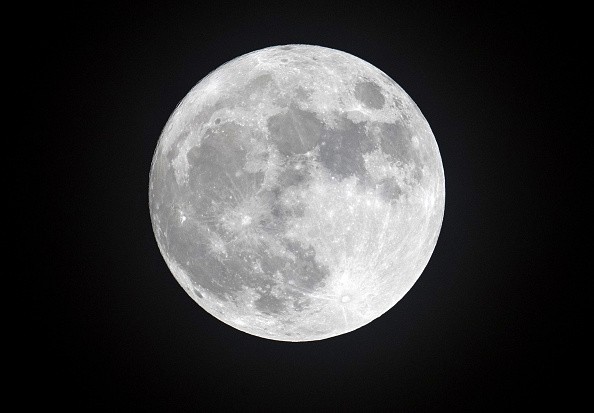According to reports, Mars' astronomical vanishing act and Full Cold Moon could emerge in the sky on Wednesday night, allowing astronomy and space lovers to see the full moon.
December has been packed with amazing and much-awaited meteorological and astronomical events.
Astronomy and space lovers should grabe the rare chance to witness.

AccuWeather reported that lunar occultation would occur when Mars finally passes directly on the moon.
The report said the occultation could happen between 6:30 p.m. to 9:30 p.m. (local time). Residents in North America could have the best view see astronomical events.
Amazingly, both Mars and Moon would cross paths.
NASA explained that the occultation could often occur yearly, and Accuweather's report said that the event was not common and it could be visible to few residents in the United States.
The last full moon of the year is also called Cold Moon. NASA explained that the cold moon means that December marks when temperatures become colder.
The previous forecast reported that the meteorological winter began on December 1.
On the contrary, the astronomical winter will begin on December 21. Temperatures in portions of the United States also feel colder weather as Christmas comes near.
Astronomy events this December
December has much-awaited astronomy events that could emerge before the month's end. Wednesday's event will show the moon brighter closer to Mars.
In addition, the report added that December 13 to December 14, would show shooting stars, indicating that the Geminid meteor showers could expect 100 meteor showers in December.
On December 21 to 22, the report said that Ursid meteor showers would appear, which could have ten potential showers per hour.
Stargazers and astronomy lovers can see the best view of astronomical events if the sky is clear and the weather cooperates.
Portions of the United States experience severe weather conditions that could also impact the sighting of the event.
Capture the sightings in any event
This month has many astronomy events. As the events come near, it is important to be prepared to capture the rare and unforgettable sightings in the sky. Here are some important reminders:
Checking and saving the schedule.
Stargazers and astronomy lovers should take note of the schedule of astronomical events. Knowing the data and best-view locations could help researchers find a place for sightings.
Also Read : Cold Rain and Snow Expected on West Coast This Week, Bringing Beneficial Rain to Ease Drought
As part of checking the schedule and activities, you should prevent travel hazards and concerns as you go out.
Look for the best place or location.
Stargazers and many always looked for the best location and place for the viewing. To experience the best view is to find a convenient place.
Bring your cameras or gadgets.
Do not forget to bring gadgets, including mobile phones and cameras. Record the magnificent and rare moments of your life using your mobile phone.
Find a friend, family or special someone to watch with.
Watching astronomical events would be ideal for you and your family.
Related Article : New Ski Season Expected as Winter and Snow Conditions Emerge
For more similar stories, don't forget to follow Nature News.
© 2026 NatureWorldNews.com All rights reserved. Do not reproduce without permission.





